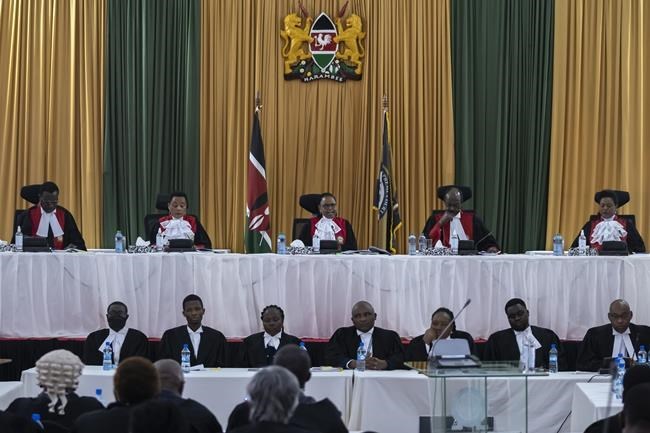NAIROBI, Kenya (AP) — Kenya’s Supreme Court has unanimously rejected challenges to the official results of the presidential election and upheld Deputy President William Ruto’s win.
Opposition candidate Raila Odinga had alleged irregularities in the otherwise peaceful Aug. 9 election that was marked by last-minute drama when the electoral commission split and traded accusations of misconduct.
The court found little or no evidence for the various claims and called some “nothing more than hot air.” It also expressed puzzlement why the four dissenting commissioners participated until the final minutes in a vote-tallying process they criticized as opaque. The commission “needs far-reaching reforms,” the court acknowledged, “but are we to nullify an election on the basis of a last-minute boardroom rupture?”
The court shocked Kenyans in the previous election in 2017 by overturning the results of the presidential election, a first in Africa, and ordered a fresh vote after Odinga filed a challenge. He then boycotted that new election.
This time, Odinga was backed by former rival and outgoing President Uhuru Kenyatta in the latest example of shifting political alliances in East Africa’s most stable democracy.
Odinga’s team had challenged the technology used by the electoral commission and alleged that voting results had been tampered with, and it argued that the electoral commission chair had essentially acted alone in declaring the winner.
Odinga’s team questioned an election seen as the country’s most transparent, with results from tens of thousands of polling stations posted online within hours of the vote for Kenyans to follow the tally themselves. Such reforms were in part the result of Odinga’s previous election challenge.
Now Kenyans wait to see whether any anger over the election will be channeled into the streets in a country with a history of sometimes deadly political violence. The election had one of the lowest turnouts in the country’s history of multiparty democracy, under 65%.
The 77-year-old Odinga, who has pursued the presidency for a quarter-century, has indicated he would accept the court’s decision.
The 55-year-old Ruto, who had a bitter split with Kenyatta after Kenyatta made peace with Odinga to calm the 2017 election crisis, had appealed to Kenyans by portraying himself as a “hustler” from humble beginnings against the “dynasties” of Kenyatta and Odinga, whose fathers were Kenya’s first president and vice president.
Ruto now faces the challenge of finding the money to back up his campaign promises to the poor, as Kenya’s debt levels are now nearly 70% of its GDP.
Cara Anna, The Associated Press



